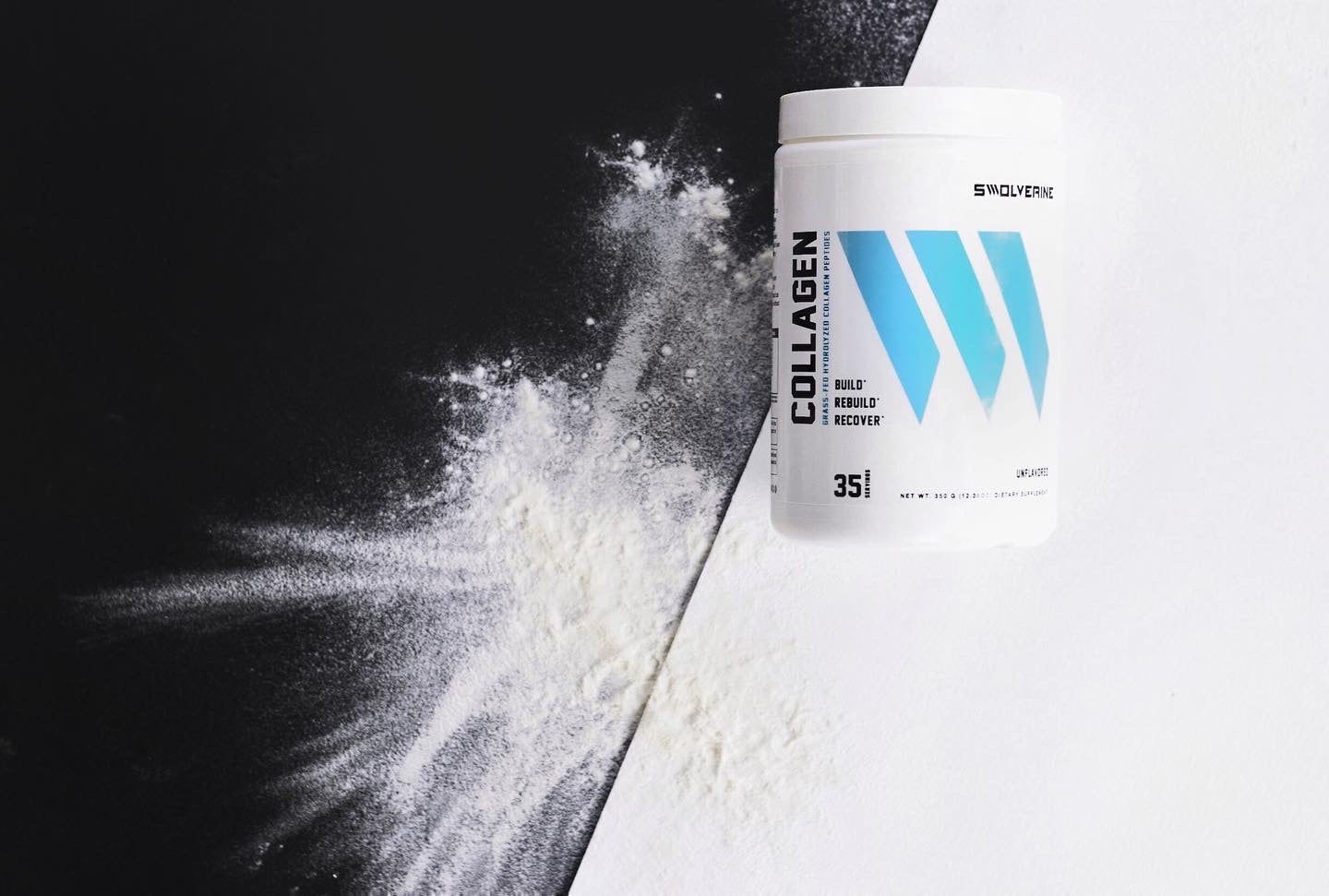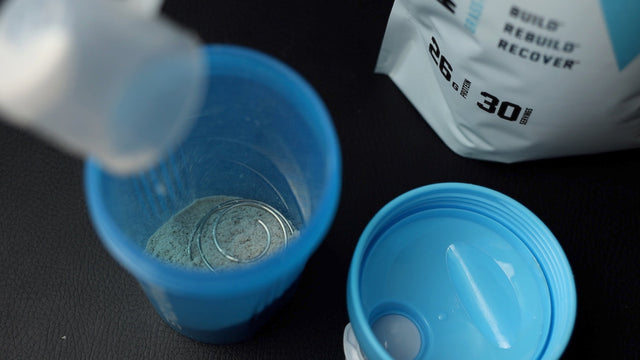In a world increasingly captivated by beauty and wellness, collagen supplements have surged in popularity, promising to enhance skin glow, boost hair vitality, and support joint health. But do they truly deliver on these claims? With an ocean of products flooding the market, many find themselves navigating a maze of marketing buzzwords and scientific jargon. This article aims to cut through the noise and delve deep into the science underpinning collagen supplementation.
We’ll explore how collagen works in the body, the kinds of supplements available, and what recent research reveals about their effectiveness. Whether you're seeking a youthful complexion, lustrous locks, or healthier joints, understanding the real impact of these supplements is essential. Join us as we unravel the mystery behind collagen and determine if these trendy health boosters are worth the investment. Your journey to informed wellness starts here!
Understanding Collagen Supplements: Science, Benefits, and What Research Really Says
Collagen supplements have become a staple in the beauty and wellness industry, touted for their ability to enhance skin elasticity, strengthen hair, and support joint health. But what exactly is collagen, and why has it gained so much attention?
Collagen is the most abundant protein in the human body and serves as a structural component in skin, bones, tendons, ligaments, muscles, and connective tissues. Often referred to as the body's "glue," collagen provides stability, strength, and elasticity throughout the body. However, natural collagen production begins to decline in our mid-20s, and this decline accelerates due to factors like sun exposure, smoking, and stress.
"After age 20, the dermis layer produces about 1% less collagen each year, leading to thinner, less elastic skin."
— Harvard Health Publishing
As a result, supplementing with collagen has become a popular strategy to offset these age-related declines and improve overall skin, joint, and hair health.
What Are Collagen Supplements?
Collagen supplements typically come in the form of powders, capsules, or liquid shots. Most are made from bovine (cow) or marine (fish) sources and are hydrolyzed into collagen peptides, which are smaller amino acid chains that are easier for the body to absorb.
"Hydrolyzed collagen is broken down into peptides, which are absorbed more efficiently in the gastrointestinal tract."
— Journal of Clinical Nutrition
Many formulas are also fortified with vitamin C, hyaluronic acid, zinc, or biotin to boost their effectiveness. These ingredients work synergistically to support collagen synthesis, hydration, and tissue repair.
Collagen's Role in the Body: A Structural Powerhouse
Collagen accounts for approximately 30% of the body’s total protein and up to 75% of the dry weight of your skin. It provides the tensile strength necessary for skin, ligaments, tendons, cartilage, and connective tissues.
There are 28 known types of collagen, but types I, II, and III are the most prevalent and clinically studied:
-
Type I: Found in skin, tendons, bones, and ligaments
-
Type II: Dominates in cartilage and is essential for joint health
-
Type III: Supports the structure of muscles, organs, and arteries
"Type I collagen is the primary collagen in dermis and is directly responsible for skin strength and elasticity."
— Baumann, Skin Therapy Letter
The Science Behind Collagen Production and Breakdown
Natural collagen production depends on cofactors like:
-
Vitamin C
-
Zinc
-
Copper
The aging process reduces fibroblast activity, while matrix metalloproteinases (MMPs)—enzymes activated by UV light and inflammation—accelerate collagen degradation.
"UV radiation increases expression of MMP-1, which breaks down Type I collagen in skin, contributing to photoaging."
— Fisher et al., Journal of Investigative Dermatology
Benefits of Collagen Supplements for Skin Health
Collagen is a key component of the dermis, the skin's middle layer. Clinical studies show collagen supplementation can:
-
Improve hydration
-
Enhance elasticity
-
Reduce wrinkle depth
"Collagen peptides significantly improved skin elasticity and moisture levels in women aged 35–55 after eight weeks."
— Proksch et al., Skin Pharmacology and Physiology (2014)
A 2019 meta-analysis found significant improvement in skin parameters across 19 studies.
"Oral collagen supplements improve skin elasticity, hydration, and collagen density. These effects are observable as early as 8 weeks."
— Choi et al., Journal of Drugs in Dermatology (2019)
Collagen's Impact on Hair Health
Collagen contributes to hair strength by:
-
Providing proline, a key amino acid for keratin production
-
Reducing oxidative stress
-
Supporting scalp health
"Hydrolyzed collagen may mitigate oxidative stress in hair follicle cells by scavenging free radicals and promoting keratin synthesis."
— Kim et al., Molecules (2018)
"Collagen supplementation may promote a healthier scalp environment, improving nutrient delivery to hair follicles and boosting hair density."
— Journal of Cosmetic Dermatology (2021)
Collagen for Joint Health and Cartilage Repair
Collagen peptides support joint health by:
-
Stimulating chondrocyte activity
-
Enhancing aggrecan and proteoglycan synthesis
-
Reducing inflammatory cytokines like IL-1β and TNF-α
"Supplementation with undenatured Type II collagen reduced knee pain and stiffness in patients with osteoarthritis by 33–40%."
— Crowley et al., International Journal of Medical Sciences (2009)
"Daily collagen hydrolysate led to a significant reduction in joint discomfort in physically active individuals over 24 weeks."
— Clark et al., Current Medical Research and Opinion (2008)
Collagen Absorption and Bioavailability
Hydrolyzed collagen peptides (2–10 kDa) are absorbed in the small intestine and enter the bloodstream rapidly. Key dipeptides like Pro-Hyp and Gly-Pro are bioactive and stimulate fibroblast activity.
"Specific dipeptides from hydrolyzed collagen, particularly prolyl-hydroxyproline, stimulate fibroblast proliferation and hyaluronic acid synthesis in vitro."
— Shigemura et al., Journal of Agricultural and Food Chemistry (2011)
Final Thoughts
Collagen supplements offer strong, research-supported benefits for:
-
Skin hydration, elasticity, and anti-aging
-
Hair strength, thickness, and antioxidant defense
-
Joint pain reduction and cartilage regeneration
"Consistent use of collagen peptides for 8 to 24 weeks can result in noticeable improvements in skin and joint health with minimal adverse effects."
— Zague et al., Dermato-Endocrinology (2018)
Tips for choosing a collagen supplement:
-
Opt for hydrolyzed collagen peptides (also labeled as "collagen hydrolysate")
-
Look for 2.5–10g daily doses supported by clinical studies
-
Choose formulas with vitamin C or hyaluronic acid for enhanced synthesis
Always consult your healthcare provider before beginning a new supplement regimen, especially if you have a medical condition or are on medication.
What the Research Says: Studies on Collagen Efficacy
The growing popularity of collagen supplements has prompted numerous studies to investigate their efficacy. While the results are promising, it's important to approach the findings with a critical eye. The quality and design of studies can vary, and more research is needed to fully understand the long-term effects of collagen supplementation. Nonetheless, the existing body of research provides valuable insights into the potential benefits of collagen for skin, hair, and joint health.
One of the most well-documented benefits of collagen supplementation is its impact on skin health. Multiple studies have shown that collagen peptides can improve skin elasticity, hydration, and overall appearance. For instance, a randomized controlled trial published in the Journal of Medical Nutrition and Nutraceuticals found that women who consumed collagen supplements for eight weeks experienced a significant reduction in wrinkles and increased skin moisture. Another study in Skin Pharmacology and Physiology reported similar findings, with participants showing improved skin elasticity after 12 weeks of collagen supplementation.
"Daily collagen supplementation significantly improved skin hydration and elasticity in randomized clinical trials."
— Proksch et al., Skin Pharmacology and Physiology
Research on collagen's effects on joint health is also encouraging. A study published in Applied Physiology, Nutrition, and Metabolism found that athletes who took collagen supplements experienced reduced joint pain and improved performance. Similarly, a review in Sports Medicine concluded that collagen supplementation could be beneficial for individuals with joint pain and osteoarthritis.
"Collagen peptides support cartilage matrix synthesis and reduce joint-related discomfort, particularly in active individuals and aging populations."
— Zdzieblik et al., Applied Physiology, Nutrition, and Metabolism
While research on collagen's impact on hair health is less extensive, the available studies indicate potential benefits. A study published in the International Journal of Trichology found that collagen supplementation improved hair thickness and overall hair health. Another study in the Journal of Cosmetic Dermatology reported that collagen peptides enhanced hair strength and reduced breakage.
"Supplemental collagen was associated with improved dermal thickness and follicle support, suggesting benefits for hair strength and density."
— Journal of Cosmetic Dermatology
Types of Collagen Supplements: Which One is Right for You?
With the myriad of collagen supplements available on the market, choosing the right one can be daunting. Understanding the different types of collagen and their sources can help you make an informed decision. Collagen supplements are typically categorized based on their origin and the type of collagen they contain. The most common types are hydrolyzed collagen, collagen peptides, and undenatured collagen.
-
Hydrolyzed collagen (collagen hydrolysate) is the most widely used form. Derived from bovine or marine sources, it undergoes hydrolysis to become more bioavailable. It is ideal for supporting skin, joint, and hair health.
-
Collagen peptides are shorter chains of amino acids derived from hydrolyzed collagen. They are quickly absorbed and frequently used in functional foods and drinks. Research shows they help reduce wrinkles and improve joint integrity.
-
Undenatured collagen (native collagen) is less processed and retains its original structure. Typically sourced from chicken cartilage, this type may help modulate the immune system and support joint health by reducing inflammation and aiding cartilage repair.
"Undenatured Type II collagen has been shown to reduce joint pain and improve mobility in patients with osteoarthritis by modulating immune responses."
— Crowley et al., International Journal of Medical Sciences
When choosing a collagen supplement, match the type to your primary goal:
-
For skin and hair, hydrolyzed collagen or peptides are ideal.
-
For joint health, undenatured collagen may offer added benefit.
-
If you avoid animal sources, marine collagen may be the best alternative.
Look for third-party tested products, clear labeling, and added cofactors like vitamin C or hyaluronic acid for enhanced absorption and collagen synthesis.
Potential Side Effects and Considerations
While collagen supplements are generally considered safe, there are important considerations:
-
Digestive issues: Bloating, gas, or upset stomach may occur, especially at high doses. Start low and take with food.
-
Allergies: Avoid marine collagen if allergic to fish; avoid bovine collagen if allergic to beef. Always check the source.
-
Kidney disease: Those with compromised kidney function should be cautious due to the increased protein load.
-
Medication interactions: If you take prescription medications or have chronic conditions, consult a healthcare provider.
-
Pregnancy and breastfeeding: There is limited safety data, so always consult your OB/GYN or healthcare provider first.
"Collagen supplements are well tolerated, but individuals with underlying health issues should seek medical advice to ensure safety and compatibility."
— National Institutes of Health Office of Dietary Supplements
Lastly, choose high-quality collagen supplements from reputable brands. Look for:
-
Transparent sourcing and manufacturing practices
-
Certifications (NSF Certified, GMP)
-
Absence of contaminants or heavy metals (verified through third-party testing)
These measures help ensure you're getting a safe and effective product that aligns with your wellness goals.
Conclusion: Are Collagen Supplements Worth It?
Collagen supplements have gained significant attention for their potential to improve skin, hair, and joint health. While the science behind collagen supplementation is still evolving, the existing research offers promising insights into their benefits. Collagen supplements can enhance skin elasticity, reduce wrinkles, strengthen hair, and support joint health, making them a valuable addition to a wellness routine.
However, it's important to approach collagen supplementation with realistic expectations. While many studies show positive results, individual responses can vary, and supplements should not be seen as a magic solution. Maintaining a balanced diet, staying hydrated, protecting your skin from UV damage, and engaging in regular exercise are all crucial components of overall health and well-being.
For those considering collagen supplements, it's essential to choose the right type and source based on your specific health goals. Whether you opt for hydrolyzed collagen, collagen peptides, or undenatured collagen, ensure that the product is of high quality and free from contaminants. Consulting with a healthcare professional can provide personalized guidance and help determine if collagen supplements are suitable for you.
In conclusion, collagen supplements can be a beneficial tool for supporting skin, hair, and joint health. While they are not a cure-all, they offer a convenient way to replenish the body's collagen levels and promote overall wellness. By understanding the science behind collagen and making informed choices, you can harness the potential benefits of these supplements and enhance your journey to healthy aging and vitality.
Find similar articles:
Supplements












